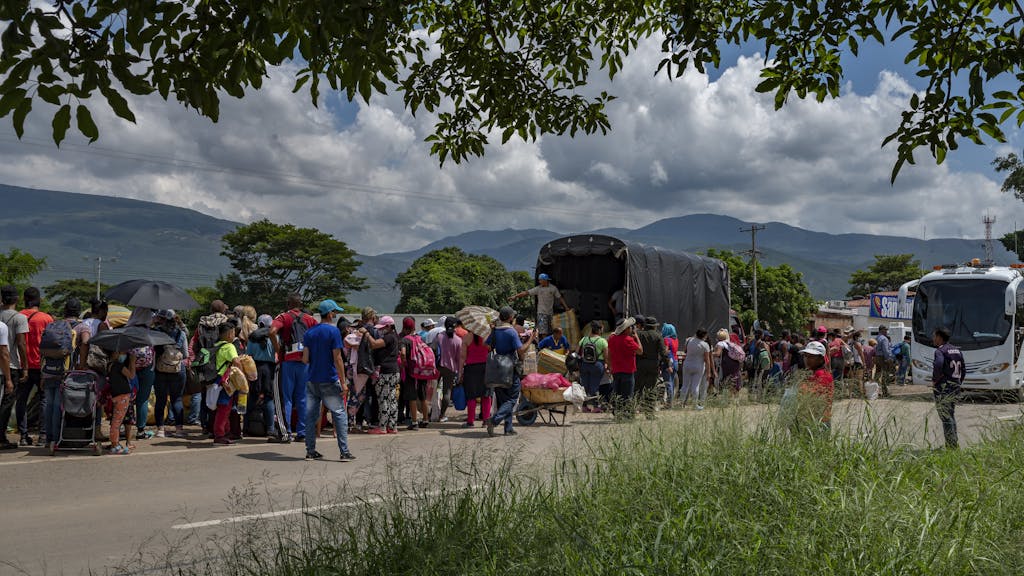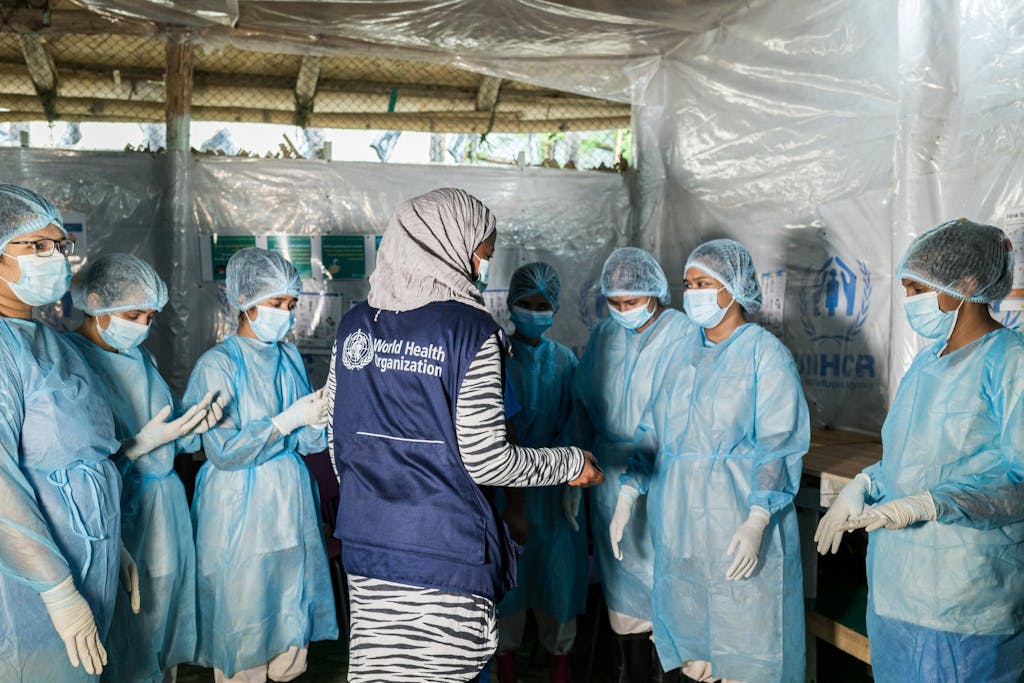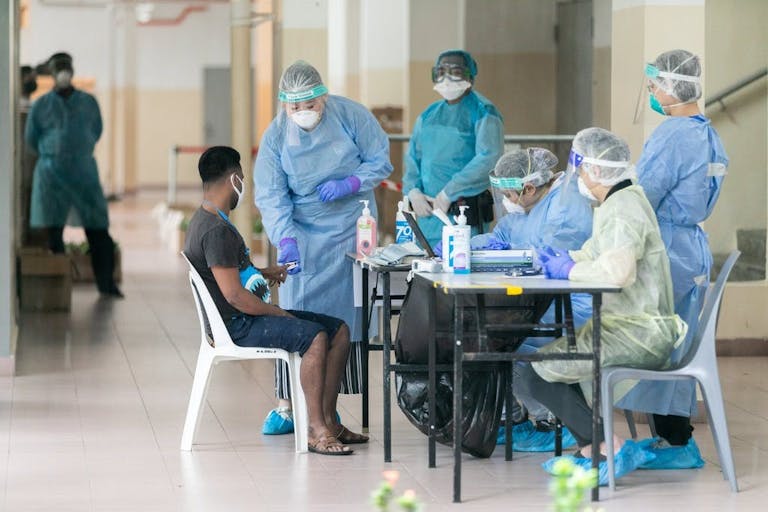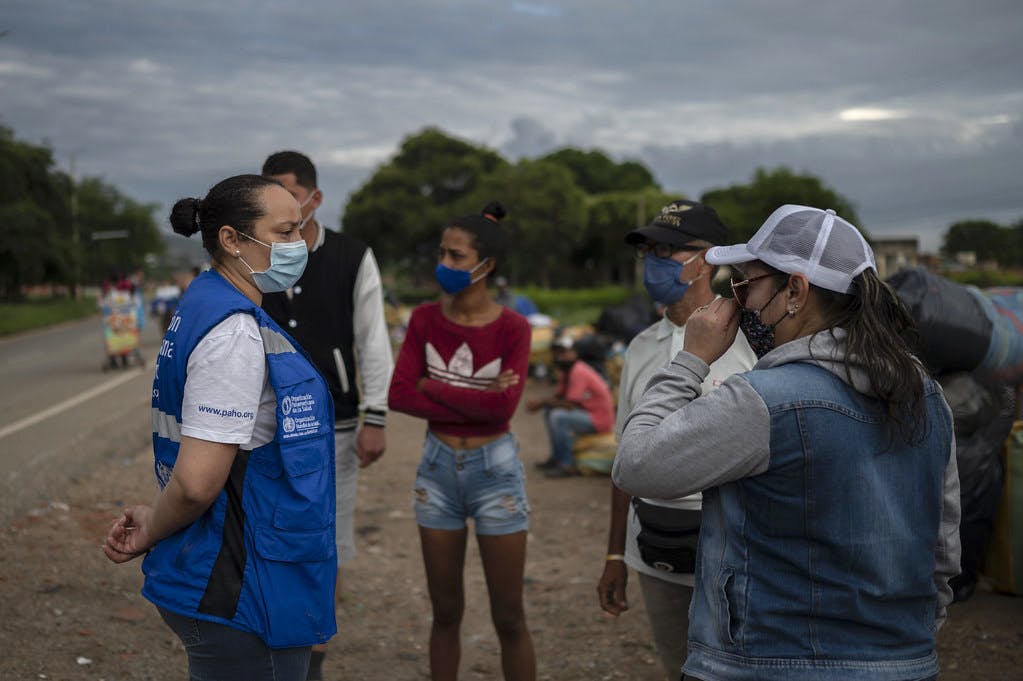With extra people compelled to flee their homes on account of battle, instability, and pure disaster, the World well being group (WHO) is working exhausting to make constructive that that migrant and refugee well being is integrated into world well being responses.
“For me, as a single mum or dad looking for asylum, it’s very scary as a outcome of there’s the extra added fear of who would take care of my youngsters ought to I fall sick. The concern might probably be paralyzing.”
“In right here, the state of affairs isn’t good. Overcrowded camp. No bodily distance amongst refugees. We use the identical relaxation room and bathe. meals line about 20,000 refugees.”
“Corona has been a nightmare for the homeless as important companies shut down, and that i used to be not in a place to entry bogs wherever. I ended up with a urinary tract an infection and on the hospital ensuing from extreme ache. general, many people had been sort and gave me meals or money after they noticed me alone on the highway; others had been very hostile as quickly as I wished to entry their relaxation room in cafes.”
These are a quantity of of the harrowing anecdotes from a latest World well being group survey that illustrates the on a daily basis expertise of migrants in the course of the COVID-19 pandemic. The examine, which surveyed over 30,000 refugees and migrants residing in a single hundred seventy international places, was carried out by WHO’s world well being and Migration Programme to study extra about how the worldwide pandemic has affected this susceptible group.
a full lot of the respondents had fled battle or dire financial situations of their dwelling nation solely to be confronted with the extra challenges posed by COVID-19. journey restrictions collectively with border closures, suspension of resettlement journey, and final-minute deportation left many stranded or compelled to protect in cramped, makeshift shelters or detention facilities. Amid these uncertain, precarious situations, many migrants described both an absence of entry to well being companies or a concern of looking for them out — even after they had been experiencing COVID-19 signs.

“Refugees and migrants stay and work in usually-harsh situations with insufficient entry to well being, housing, water, sanitation, and completely different fundamental companies,” said WHO Director-widespread Dr. Tedros Adhanom Ghebreyesus. “it is important for all international places to in the discount of obstacles that forestall refugees and migrants from buying well being care, and to incorporate them in nationwide well being insurance coverage policies.”
The world is bearing witness to the most important migrations and displacement of people for the purpose that finish of World battle II, with complete communities being pushed away from their dwelling international places ensuing from battle, extreme violence, financial and political instability, and environmental hazards. right this second, 281 million people are worldwide migrants, almost 26 million are refugees, and as of 2020, better than eighty million have been compelled to depart their homes on account of persecution, battle, or generalized violence. The United Nations predicts that this enchancment will proceed to velocity up ensuing from rising inequality, inhabitants development, rising connectivity, and local climate change. These demographic traits have led to elevated calls by the UN system to proactively place migrants’ wants entrance and center of nationwide well being insurance coverage policies — and by no means merely as a response to crises or emergencies.
“Most stakeholders thought-about the well being side to be a side affect of the migratory course of,” said Dr. Santino Severoni, director of WHO’s world well being and Migration Programme. “What we’re advocating for is for well being to be a founding precept for human properly-being.”
Mainstreaming refugee and migrant well being
Appointed in June 2020 to oversee the mannequin new WHO initiative, Severoni is a medical doctor from Italy with a decade of expertise engaged on the intersection of migration and well being. He leads a workforce dedicated to supporting WHO Member States as they grapple with the general public well being challenges that embrace large-scale migration, and to current world management in well being and migration factors by proof-primarily based knowledge and coverage, evaluation, and advocacy. Their work builds on WHO’s world movement plan (2019-2023) promoting the well being of refugees and migrants, which goals to reinforce well being requirements and obtain common well being safety for all.
With the onset of the pandemic, Severoni frightened that international places might rely on previous tropes about migrants, fueling stereotypes and misinformation about this inhabitants spreading the virus.
“‘Now migrants will possible be accused of spreading COVID-19 round as a outcome of they’re cell’ — this was my first concern,” he said. “however although there have been makes an try to try this, the pandemic unfold so quick that there wasn’t a lot time or power to politicize the migrant concern.”
WHO and its UN companions work with host governments to make it potential for the well being wants of refugees and migrants are being thought-about at every step of the pandemic response and that they are receiving the identical care as locals. an aspect of this means conveying to host communities that the virus is aware of no borders and that nobody is protected till all people seems to be protected. In Yemen, for event, many migrants turned the goal of xenophobic assaults, and in consequence, had been topic to compelled quarantine and movement restrictions, and in some circumstances, they had been left stranded with out entry to meals, water, or well being companies.
collectively with discrimination are factors with reference to the concern of implementing preventive measures equivalent to bodily distancing or hand hygiene in crowded non everlasting settlements or places of detention. In Cox’s Bazar in Bangladesh — which homes 850,000 refugees, on this planet’s largest camp cluster — WHO arrange an early detection and surveillance system, collectively with testing websites for Rohingya refugees and their host group. additionally they expert a full lot of volunteers on contact tracing strategies to protect monitor of constructive circumstances, and on scientific case administration to make it potential for sufferers had been receiving the most interesting remedy.

In Colombia — the place 1.7 million Venezuelans have sought refuge ensuing from nation’s difficult sociopolitical and financial context — the Pan American well being group/World well being group (PAHO/WHO) is working intently with native and nationwide officers, as properly as to completely different companions on the underside, to advance a full response that addresses migrants’ particular well being wants. They organized technical working teams to sort out precedence areas that will require multisectoral assist, collectively with sexual and reproductive well being, little one well being, psychological well being, epidemiological surveillance and prevention, and emergency response, collectively with epidemics. The workforce additionally developed communications supplies on COVID-19 prevention measures, countering xenophobia, and defending human rights for every migrants and host communities.
“it is fundamental to promote migrants’ entry to companies past emergency care, guaranteeing their entry to medicines, referrals for specialised care, well being promotion devices, and illness prevention and remedy,” Dr. Maria Eugenia Peréz and Dr. Francisca Arboleda, nationwide consultants working with PAHO/WHO Colombia, said in an digital message.
just at present, the Colombian authorities introduced it is going to current migrants and refugees non everlasting safety standing for 10 years, which might allow these people to entry well being companies and COVID-19 vaccinations.
“now we want to basically stand by and assist host international places, not simply ensuing from shared accountability, however as a outcome of a rustic that is receiving, internet hosting, nourishing hundreds and hundreds of refugees and migrants actually pays a service to world society,” Severoni said.

Leaving nobody behind
definitely one of many important pressing challenges for Severoni’s workforce is advocating that every one refugees and migrants be integrated into vaccine rollout plans. solely 1 / 4 of nationwide vaccination plans submitted to the COVAX facility so far embrace refugees and migrants, elevating factors about not solely violating human rights, however in addition that leaving this inhabitants behind will allow the pandemic to proceed to unfold. Severoni factors out that no state of affairs is ever black and white, and that many host societies are grappling with their very personal useful resource challenges.
“in all probability the most regarding state of affairs is when now we have international places with a scarcity of means and performance and additionally they want to allocate between this or that,” he said. “that is the place we, the worldwide group, want to play an important function in offering assist and assets.”
on the identical time, he stresses that equity in vaccine entry — no matter nation of origin or authorized standing — is the one strategy to place an finish to the pandemic.
“The pandemic has compelled many international places all by the world to confront what the general public well being area has been addressing all these years: that no matter who you is extra possible to be, common well being safety is the rational strategy, and the one strategy to observe if we actually want to see outcomes,” he said.
Featured picture: Karen González/ Pan American well being group (PAHO)

